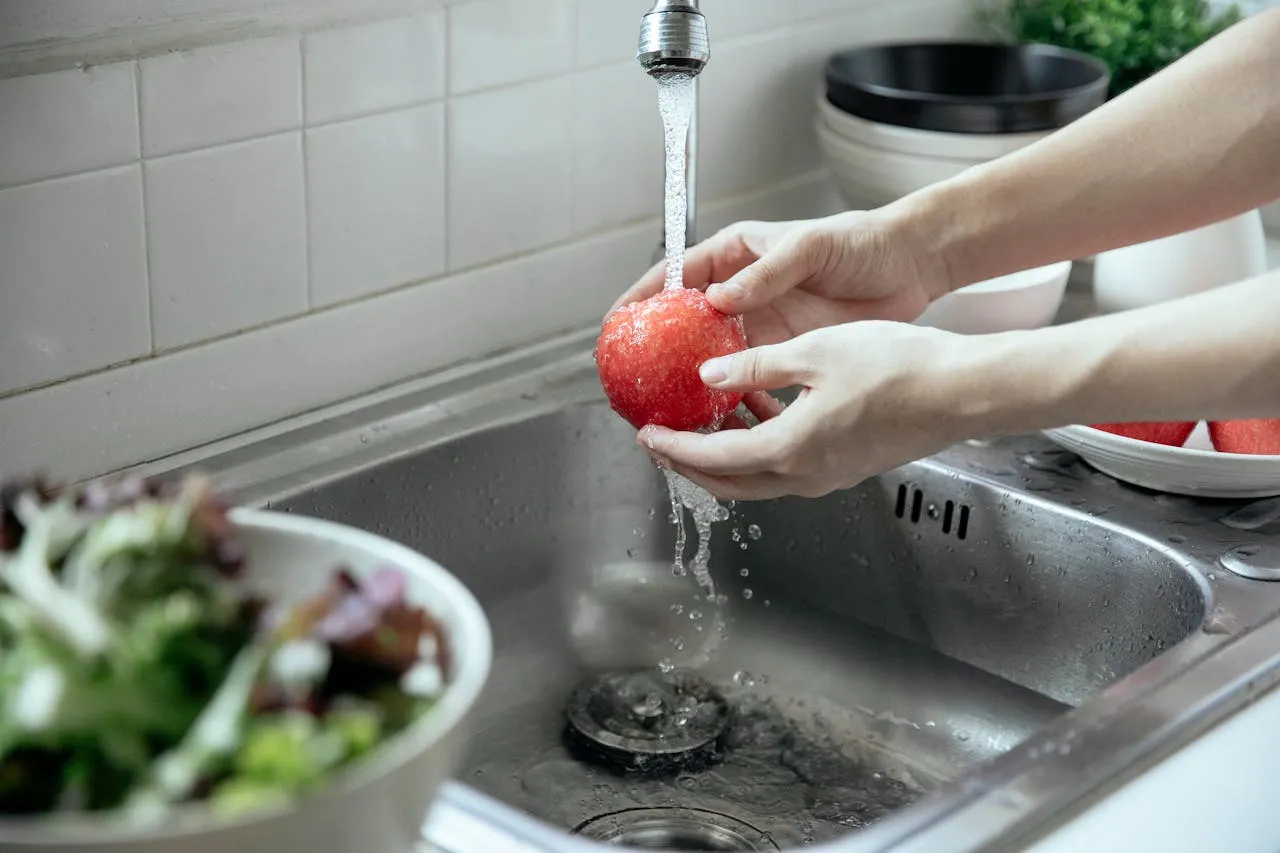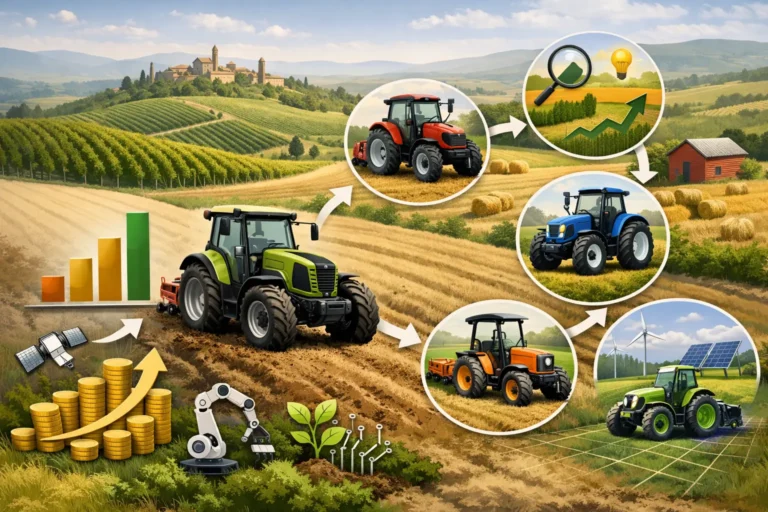
FoodReady, a leading provider of AI-powered platforms for food supply chain management, food safety compliance, inventory oversight, and traceability solutions, has released new insights on the future of artificial intelligence (AI) in the global food and beverage industry. Co-Founder and Co-CEO Gerry Galloway outlined how AI is reshaping the way food businesses manage compliance, traceability, and quality systems—and why companies that fail to embrace these technologies risk being left behind.
According to Galloway, by 2027, AI-powered systems will no longer be an optional tool but the industry’s default method of managing critical processes such as inventory, supply chain oversight, HACCP planning, audits, quality management, and compliance documentation. This marks a significant shift away from static, paper-based or manually maintained systems, which for decades were the norm in the food industry.
“AI is no longer an emerging tool for food safety, traceability, and supply chain management—it’s becoming the industry’s operating system,” said Galloway. “By 2027, companies still relying on manual documentation will fall behind in compliance, particularly with regulations like FSMA 204. AI-native platforms won’t just be a competitive advantage—they will be the baseline requirement for meeting quality, safety, and regulatory standards across the global food supply chain.”
Automating Supply Chains, Food Safety, and Traceability
FoodReady has invested heavily in building AI-native solutions designed to replace manual food safety and supply chain documentation processes. Over the past year, the company launched a comprehensive suite of tools, including its AI Supplier Approval System, AI Checklist Builder, AI SOP Generator, AI HACCP Builder, and AI Compliance Assistant.
These technologies enable food and beverage businesses to rapidly generate compliance-ready documents aligned with FDA, USDA, SQF, and GFSI standards. What once took compliance teams hours or even days—writing, formatting, and validating SOPs or HACCP plans—can now be completed in minutes. By incorporating regulatory updates and facility-specific operational data directly into its systems, FoodReady helps businesses create tailored documentation that reflects both industry requirements and real-world production conditions.
Beyond compliance documentation, FoodReady has also expanded its inventory and traceability capabilities. Its end-to-end lot tracking tools, recall readiness modules, and centralized traceability dashboards are designed to meet the FDA’s FSMA 204 Key Data Element (KDE) requirements. Fully integrated into FoodReady’s mobile platform, these tools empower production teams to capture, verify, and approve critical data from receiving through shipping in real time.
Meeting Growing Compliance Demands With AI
Galloway highlighted the rising challenges food businesses face in managing compliance. Increasingly complex audits, more frequent product recalls, and evolving state and federal regulations are straining even the most experienced quality and food safety teams. Added to these pressures is a persistent labor shortage, making it more difficult for companies to maintain robust compliance documentation with limited staff resources.
“Documentation used to be a static PDF or a dusty binder in a back office,” Galloway explained. “Today, regulators and auditors expect digital, real-time records with traceable sources and validation trails. The only way to meet these expectations at scale is with AI and automation.”
The company’s AI Compliance Assistant directly addresses this problem by enabling users to interact with compliance systems in a conversational way. Food safety managers can ask contextual questions, receive tailored program recommendations, and instantly generate drafts of SOPs or checklists based on their facility’s unique profile. This reduces the time spent researching regulatory requirements or drafting documents manually, while simultaneously improving accuracy, consistency, and audit readiness.

Preparing for FSMA 204 and Beyond
A central focus for FoodReady is helping food businesses prepare for the FDA’s FSMA 204 rule, which imposes stringent new recordkeeping requirements around traceability. The company’s FSMA 204 Compliance Module integrates seamlessly with its broader AI platform, capturing required KDEs, automating lot tracking, and supporting recall simulations.
Galloway believes AI’s ability to harmonize data across departments—from QA and production to receiving and logistics—will be essential to meeting FSMA 204 and future regulatory challenges.
“The future of food safety is connected and intelligent,” he said. “Our vision is a digital twin of your facility’s compliance posture, where every input and output, checklist, and record is searchable, reportable, and AI-enhanced.”
This concept of a “digital twin” reflects a broader industry trend toward predictive compliance, where businesses can not only maintain real-time oversight but also anticipate risks before they become regulatory violations or safety hazards.
Accelerating Industry Adoption
FoodReady reports that adoption of its AI-driven SOP and HACCP tools has doubled in the last six months, particularly among mid-sized food processors and manufacturers. Early adopters span a wide range of industries, including produce, dairy, ready-to-eat (RTE) foods, frozen meals, and nutraceuticals.
Customers are embracing AI-driven compliance solutions for two primary reasons: significant time savings and improved audit performance. For example, tasks such as SOP creation, which previously required multiple days of manual effort, can now be completed in minutes. The consistency of AI-generated documentation also leads to higher audit success rates, with customers reporting smoother inspections from organizations such as GFSI, USDA Organic, Costco, and the FDA.
By replacing manual processes with scalable, AI-powered workflows, FoodReady’s clients are not only reducing administrative burdens but also gaining the confidence that their documentation is accurate, audit-ready, and continuously aligned with evolving regulations.
AI as the New Baseline for the Food Industry
The implications of FoodReady’s vision extend far beyond convenience. Galloway’s prediction—that AI will become the default operating system for food businesses by 2027—signals a paradigm shift in how the industry approaches compliance and safety.
Where food safety was once reactive, managed through binders of documentation and after-the-fact reporting, AI enables a proactive, real-time, and connected approach. Companies that adopt AI today are positioning themselves not just to keep up with regulatory requirements but to stay ahead of them, gaining long-term resilience in an increasingly complex global food supply chain.
For food businesses, the choice is becoming clear: continue struggling with outdated manual systems, or transition to AI-driven platforms that make compliance, traceability, and quality management scalable, efficient, and intelligent.
As Galloway emphasized, “AI-native platforms won’t just be about gaining a competitive edge—they will be the minimum requirement for operating in tomorrow’s food industry.”





